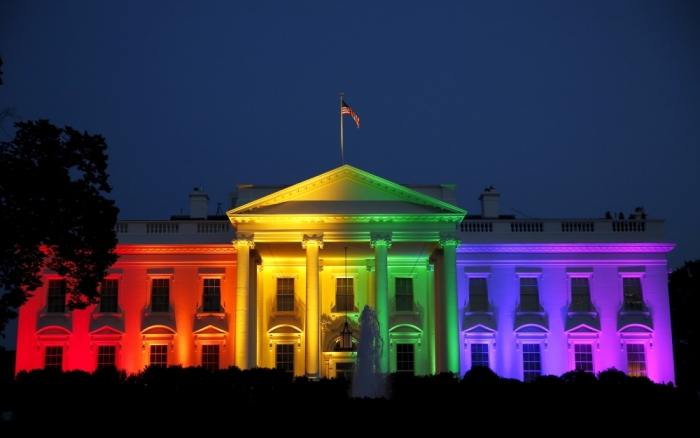Why Homosexuality Is Not Like Other Sins, DesiringGod Writer Explains

Homosexuality is one of the nine sins mentioned in 1 Corinthians with reference to the unrighteous who will not inherit the kingdom of God, but it is different from all the rest, writes an author on the desiringGod blog, explaining why this difference is even more pronounced today.
"At this moment in history, contrary to the other sins listed here, homosexuality is celebrated by our larger society with pioneering excitement. It's seen as a good thing, as the new hallmark of progress," writes Jonathan Parnell, the lead pastor of Cities Church in Minneapolis, Minnesota.
This sets homosexuality apart from the other sins mentioned in the passage: sexual immorality, idolatry, adultery, thievery, greed, drunkenness, revilement and swindling, Parnell writes in an article written months before the Supreme Court decision legalizing same-sex marriage but republished on the home page of the desiringGod ministry now due to its increased relevance.
"Each of these unrepentant sins are the same in the sense of God's judgment. They all deserve his wrath," Parnell writes, adding that none of those sins is applauded so aggressively by whole groups of people who advocate for their normalcy.
In the 5-4 ruling, Justice Anthony Kennedy wrote for the majority, saying, "No union is more profound than marriage, for it embodies the highest ideals of love, fidelity, devotion, sacrifice and family. In forming a marital union, two people become something greater than they once were." But he added, "Their hope is not to be condemned to live in loneliness, excluded from one of civilization's oldest institutions. They ask for equal dignity in the eyes of the law. The Constitution grants them that right."
Parnell notes, however, "Sexual immorality is no longer the tip of the spear for the progressive push."
"Adultery is still frowned upon by many. Accusations of greed will still smear a candidate's political campaign. Thievery is still not openly embraced," he added, "and there are no official initiatives saying it's okay to go take things that don't belong to you. There's no such thing as a drunk agenda yet. Most aren't proud to choose a beverage over stability, and there aren't any petitions that the government should abolish the driving restrictions of inebriated individuals. Reviling others still isn't seen as the best way to win friends and influence people. Swindling, especially on a corporate level, usually gets someone thrown into jail."
In contrast, homosexual practice is being promoted by those holding positions of prominence," Parnell asserted. "And if our society celebrates it, we can't both be caring and not say anything."
He explains that the issue of homosexuality has become divisive, as some would like to see it into two camps.
"There are the growing numbers, under great societal pressure, who praise homosexuality. We might call them the left. And there are people who hate homosexuality, with the most bigoted rationale and apart from any Christian concern. We might call them the right."
But true followers of Christ will walk neither path, as we have something to say that no one else is saying, or can say, the author adds.
"We don't celebrate homosexual practice, we acknowledge God's clear revealed word that it is sin; and we don't hate those who embrace homosexuality, we love them enough to not just collapse under the societal pressure. We speak the truth in love into this confusion, saying, simultaneously, 'That's wrong' and 'I love you.'"
That's the Christian message in this debate, "when society's elites despise us, when pop songs vilify us, when no one else has the resources to say anything outside of two extremes, we have this incomparable opportunity to let the Gospel shine, to reach out in grace: you're wrong and you're loved. … That's why homosexuality is not like other sins."





























